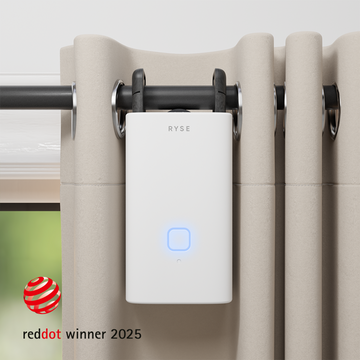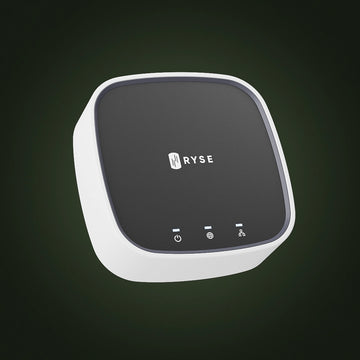Don't have time to read the entire Americans with Disabilities Act document but still want to make sure your hotel is up to code? We've got you covered.
On this page, we will highlight the key things you need to know, and exactly how RYSE SmartShade will help you meet ADA requirements. We've identified the 4 most important sections for you.
Does ADA apply to me?
ADA applies to any new construction or a building undergoing an "alteration". The term “alteration” is used to mean any change to an existing building or facility that affects usability.
This includes:
This does not include:
What are the most important ADA sections?
Section 9(1) Transient Lodging
The Code
“Includes facilities or portions thereof used for sleeping accommodations, when not classed as a medical care facility.”
This is the section of the ADA code which directly applies to the hotels. The number of ADA compliant guest rooms needed depends on the overall number of guest rooms in your hotel.
Below is a chart sourced from the ADA code that outlines exactly how many guest rooms at the minimum needs to be ADA compliant.
|
Number of rooms |
ADA compliant rooms |
|---|---|
|
1 - 25 |
1 |
|
26 - 50 |
2 |
|
51 - 75 |
3 |
|
76 - 100 |
4 |
|
101 - 150 |
5 |
|
151 - 200 |
6 |
|
201 - 300 |
7 |
|
301 - 400 |
8 |
|
401 - 500 |
9 |
|
501 - 1000 |
2% of total |
|
1001 and over |
20+1 (for each 100 over 100) |
It's important to note that public areas are not required to have ADA compliant controls or reach standards that meet this code as indicated in Section 9.2.2(5) Minimum Requirements that mentions "All controls in accessible units, sleeping rooms, and suites shall comply with 4.27.”
Section 4.2.5 Forward Reach
The Code
“If the clear floor space only allows forward approach to an object, the maximum high forward reach allowed shall be 48 in (1220 mm). The minimum low forward reach is 15 in (320 mm). If the high forward reach is over an obstruction, reach and clearances shall be as shown in Fig. 5(b).”
What this means: When approached directly, window treatments should be able to be easily adjusted with very little reach required (between 15 inches and 48 inches).
Section 4.2.6 Side Reach
The Code
“If the clear floor space only allows parallel approach by a person in a wheelchair, the maximum high side reach allowed shall be 54 in (1370 mm) and the low side reach shall be no less than 9 in (230 mm) above the floor (Fig. 6(a) and (b)). If the side reach is over an obstruction, the reach and clearances shall be as shown in Fig. 6(c)."
What this means: When approached from the side, window treatments should be able to be easily adjusted with very little reach required (between 9 inches and 54 inches).
Section 4.27.4 Operation
The Code
“Controls and operating mechanisms shall be operable with one hand and shall not require tight grasping, pinching, or twisting of the wrist. The forces required to activate controls shall be no greater than 5 lbf (22.2 N).”
What this means: Window treatments should be able to be adjusted without the guest having to strain or apply force.
The Bottom Line
- Follow the above table to determine the minimum number of ADA compliant room your hotel requires.
- If your brand specs call for roller shades, use motorized roller shades.
- If you brand specs calls for draperies, use either ADA looped batons that will reach from mounting height to within 48” off the floor OR motorized drapery tracks with a remote.
Get your project finished, under budget and on time
RYSE SmartShade is ready to order and ship to you today. At a fraction of the cost of traditional solutions, your project will get finished under budget and on time.
Still have questions? Get in touch with our specialists at partner@helloryse.com



